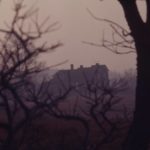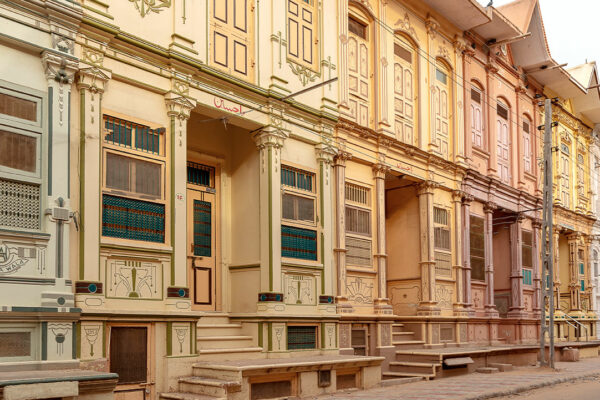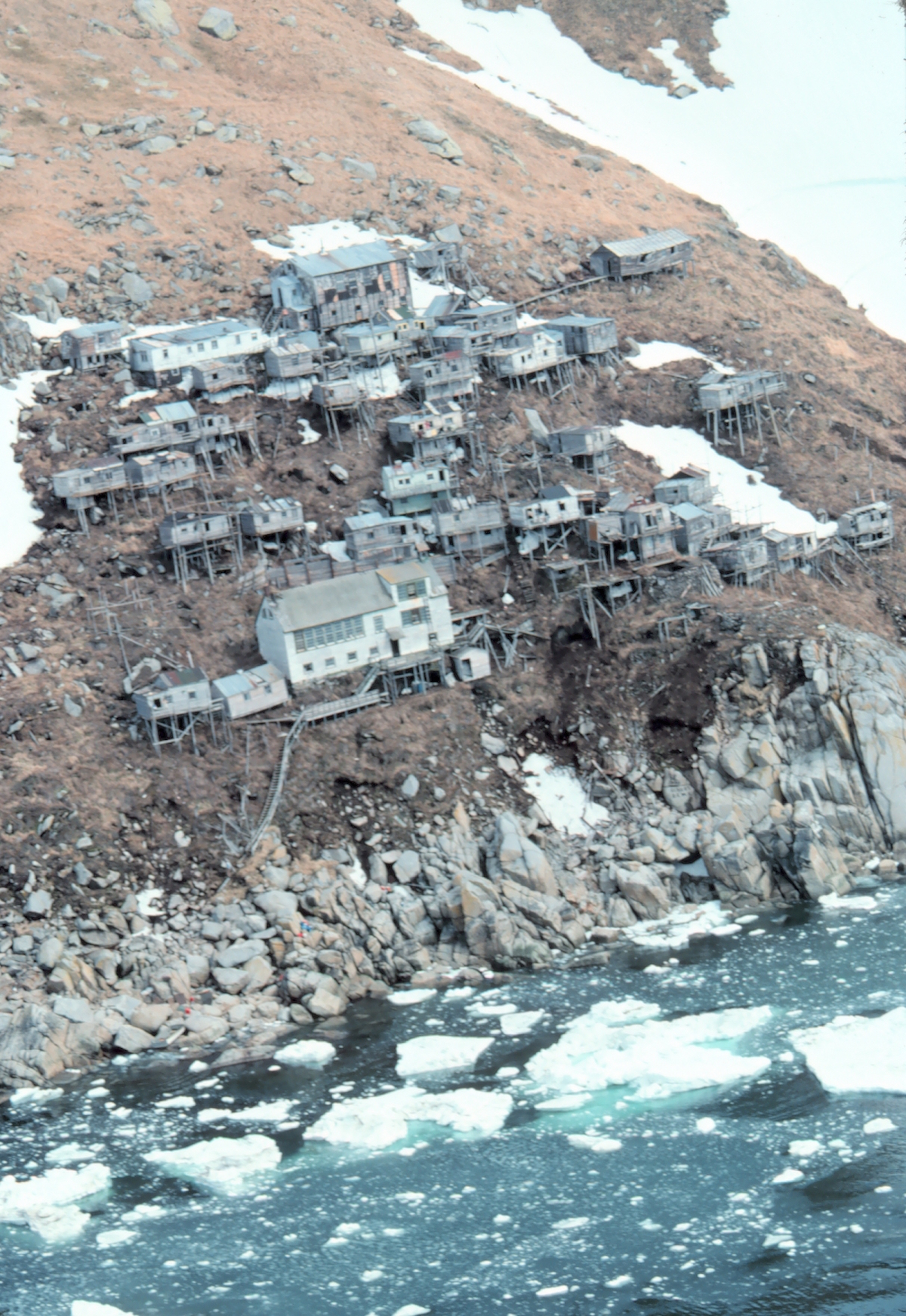
NOAA Photo Library
For thousands of years, a community of Inupiat Eskimos lived, survived and thrived in one of the harshest environments in the world. This is King Island and these are the improbable cliff-hanging houses of Ukivok that a displaced community still calls home more than 50 years after its abandonment.
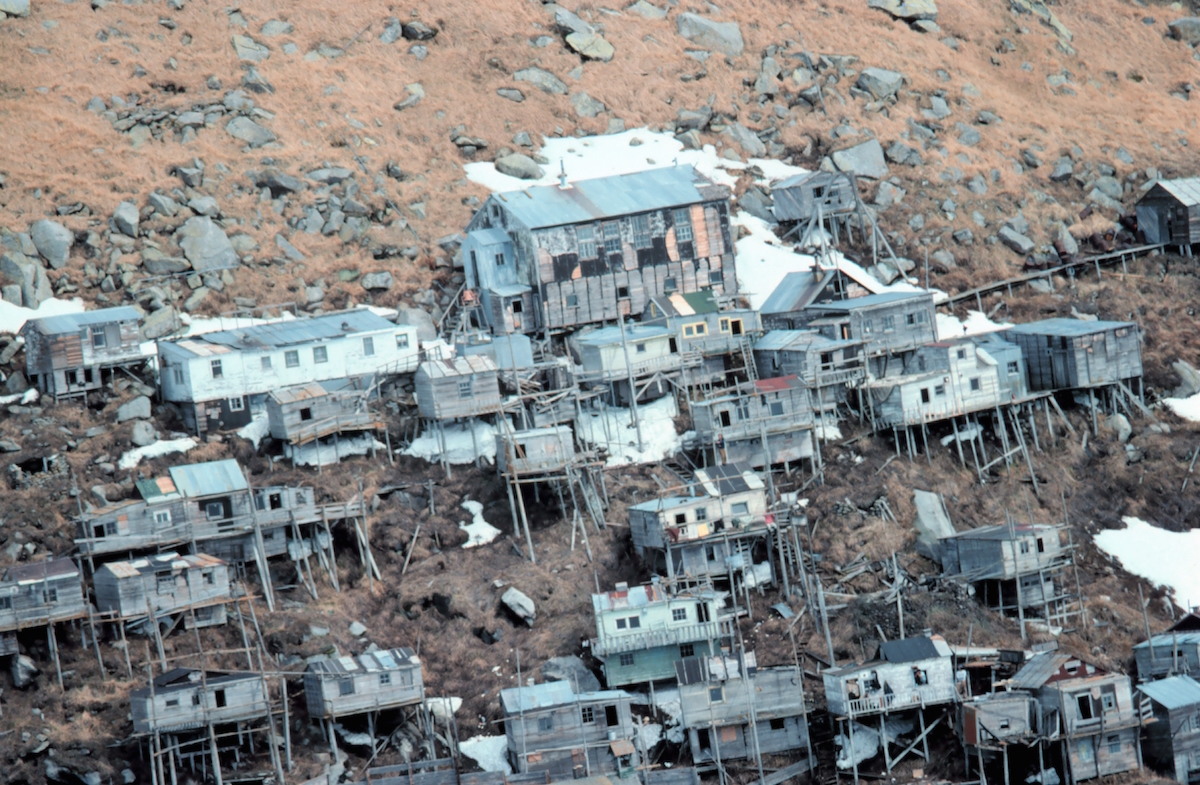
(c) NOAA Photo Library
In 1959, the Bureau of India Affairs made the decision to close King Island’s only school at the heart of the village. There was a large boulder on top of the rocky island that they believed was ready to fall and crush the school in its path. With the children left without a school, families were forced to seek education for them on the mainland and given no choice but to move from their homes and start a new way of life.
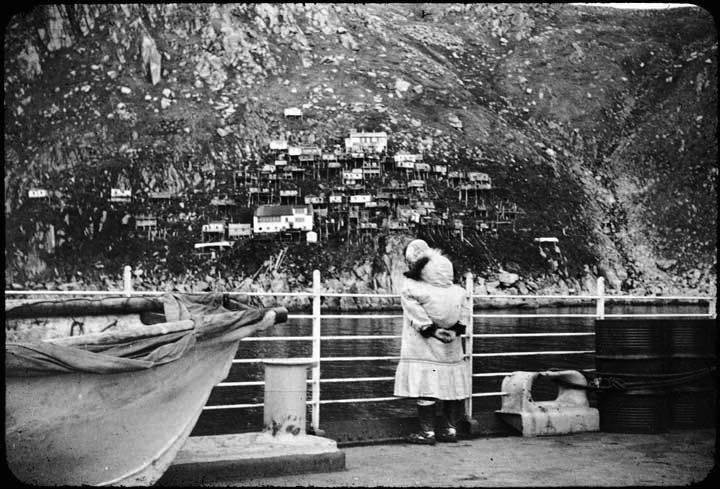
Alaska State Library
The Inupiat Eskimos survived on hunting walrus and gathering edible plants, but the elders could not manage it alone. The last natives left their homeland in 1970.
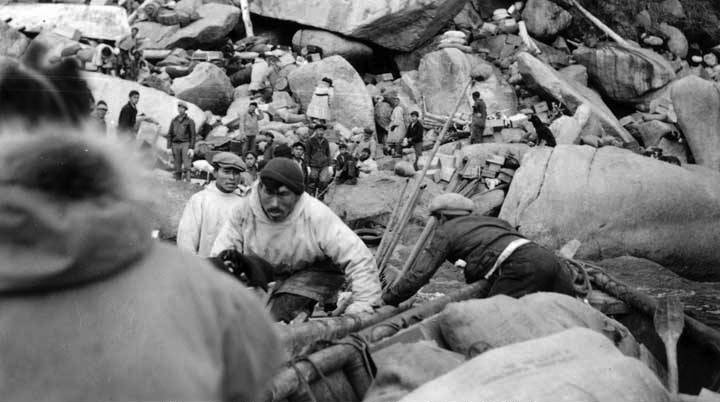
Alaska State Library
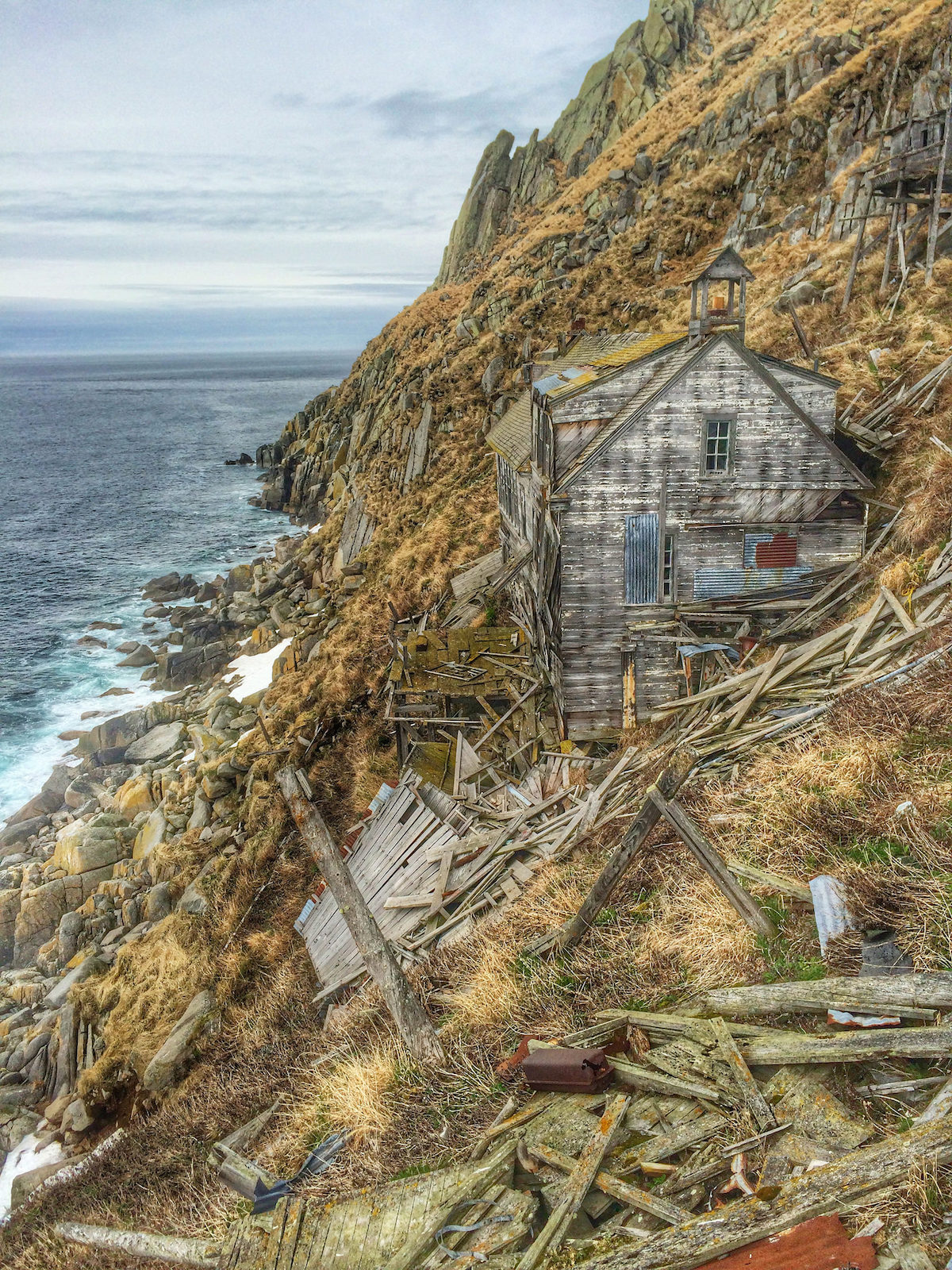
(c) Fish Foto
Nearly 60 years after its closure, remarkably, the schoolhouse (pictured above) and many of the village’s surrounding houses are still standing and the supposed soon-to-fall boulder has still not moved.
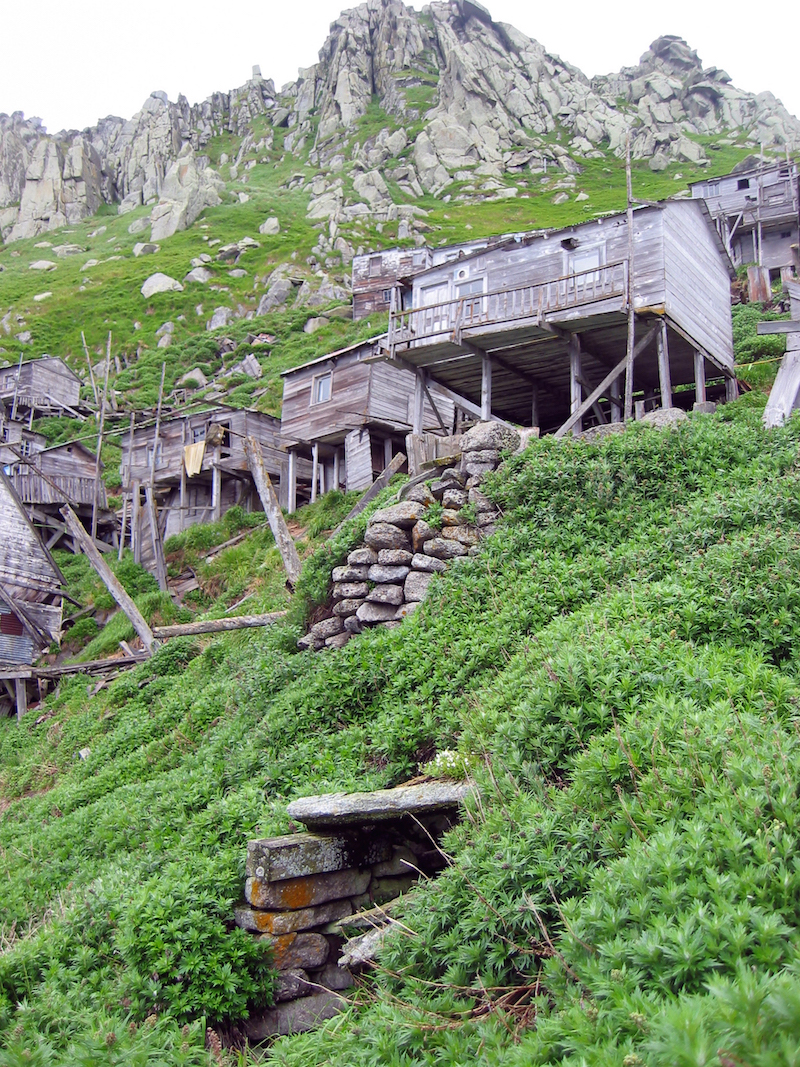
(c) National Science Foundation
In the summer of 2015, an Alaskan poet and daughter of displaced King Islanders, Joan Naviyuk Kane, raised over $40,000 to help her parent’s generation see their homeland again. Almost impossible to reach, the mile-wide island has nowhere to land by airplane, no beach, only boulders, and a journey by boat (hitching a ride with a crab tender) takes up to 12 hours from the mainland. In fact, the only boats really suitable for getting ashore were the skin boats used by trading natives for thousands of years. You can start to understand why no one has been able to return.
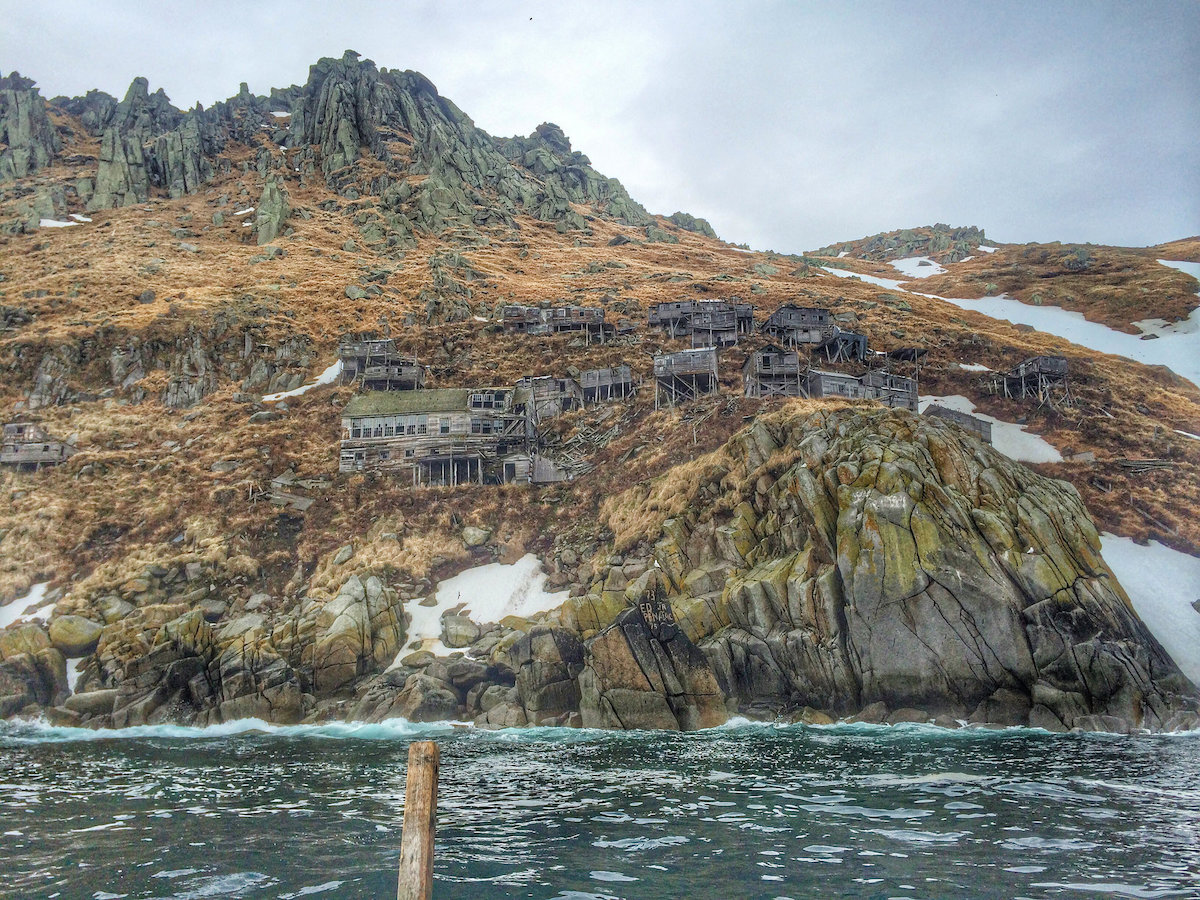
(c) Fish Foto
Kane’s funds helped charter appropriate transportation for the elders to the island and obtain necessary supplies for a two week stay during which the group was able to reconnect to their place of origin.
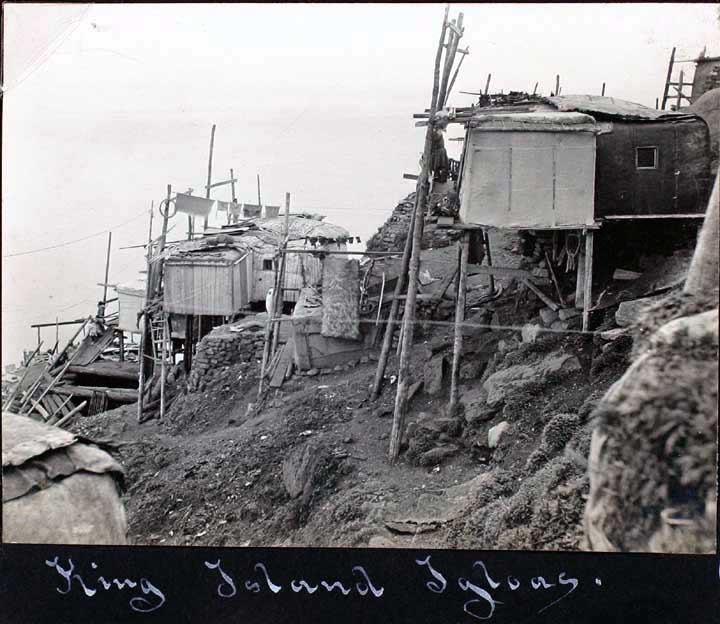
Alaska State Library
Joan was able to see the house where her mother grew up, her father and his siblings were able to revisit their childhood; listen to the birds, smell the air one more time, eat the salmonberries growing on the island.
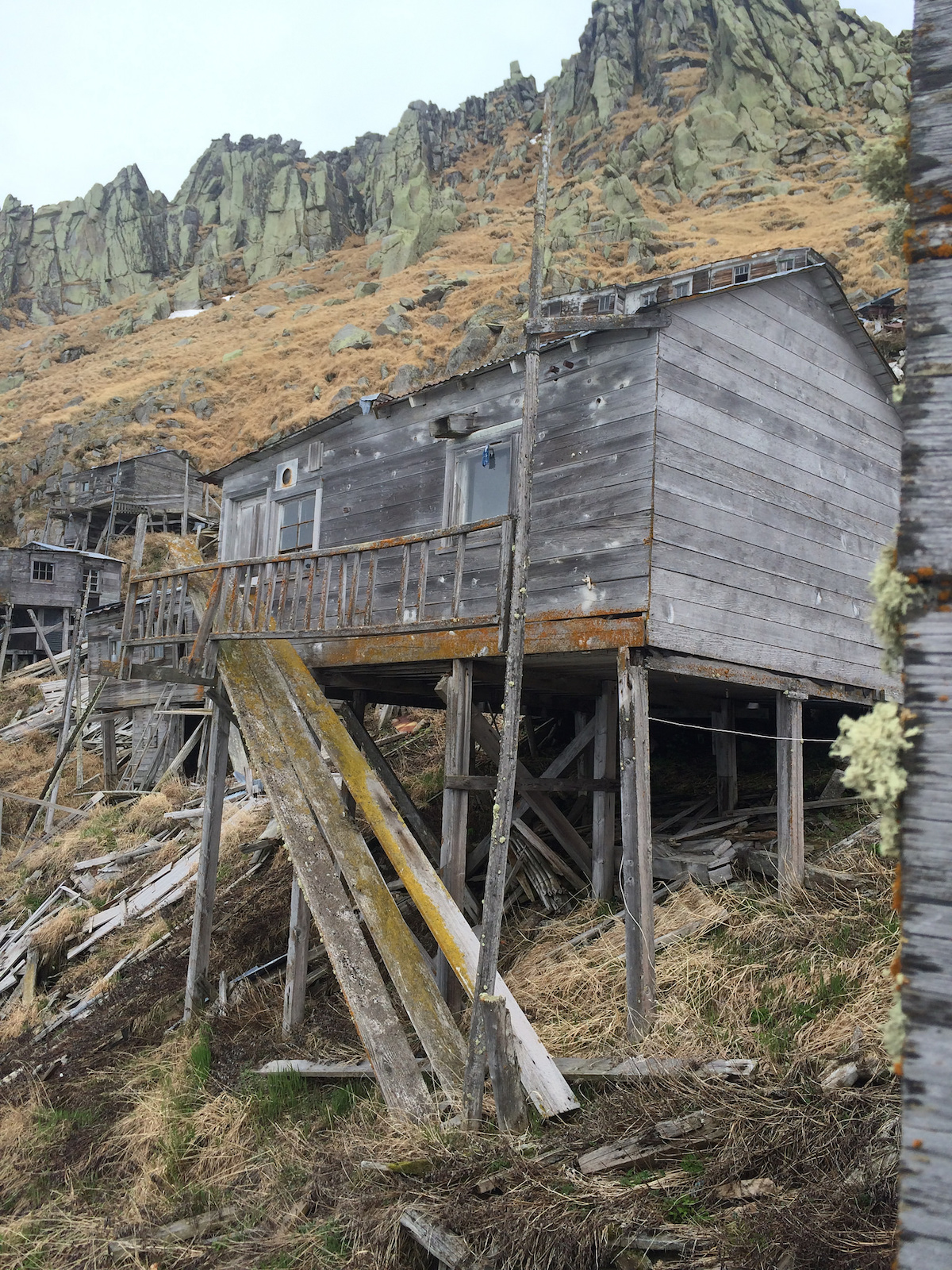
(c) Fish Foto
This remote island village stands defiantly against the elements despite the passing of time and the absence of man, as if it were expecting its inhabitants to return any moment and resume life as it was before. Perhaps one day, life may very well begin again here, on remote islands such as this when man is forced to return to its hunter & gatherer ways, in search of the last civilisations who thrived in the harshest of environments.




